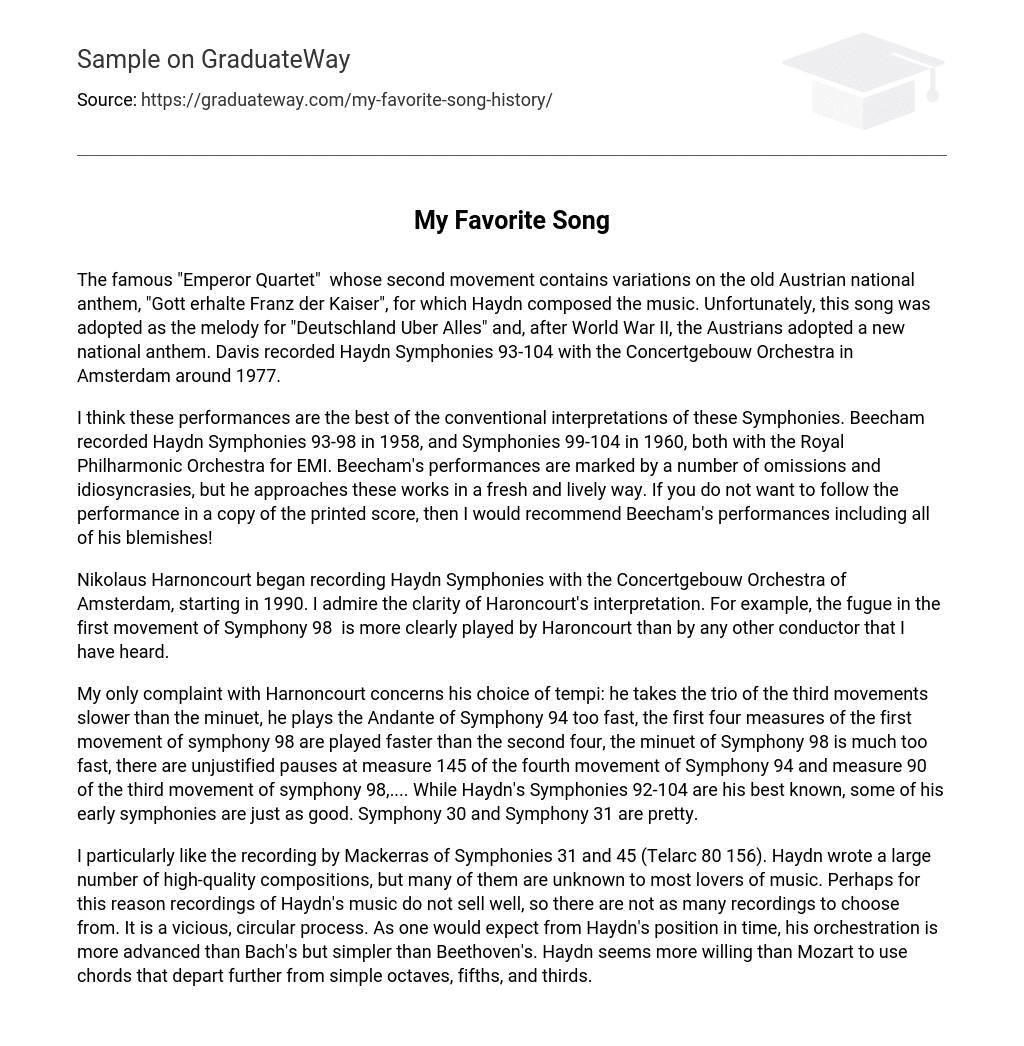The famous “Emperor Quartet” whose second movement contains variations on the old Austrian national anthem, “Gott erhalte Franz der Kaiser”, for which Haydn composed the music. Unfortunately, this song was adopted as the melody for “Deutschland Uber Alles” and, after World War II, the Austrians adopted a new national anthem. Davis recorded Haydn Symphonies 93-104 with the Concertgebouw Orchestra in Amsterdam around 1977.
I think these performances are the best of the conventional interpretations of these Symphonies. Beecham recorded Haydn Symphonies 93-98 in 1958, and Symphonies 99-104 in 1960, both with the Royal Philharmonic Orchestra for EMI. Beecham’s performances are marked by a number of omissions and idiosyncrasies, but he approaches these works in a fresh and lively way. If you do not want to follow the performance in a copy of the printed score, then I would recommend Beecham’s performances including all of his blemishes!
Nikolaus Harnoncourt began recording Haydn Symphonies with the Concertgebouw Orchestra of Amsterdam, starting in 1990. I admire the clarity of Haroncourt’s interpretation. For example, the fugue in the first movement of Symphony 98 is more clearly played by Haroncourt than by any other conductor that I have heard.
My only complaint with Harnoncourt concerns his choice of tempi: he takes the trio of the third movements slower than the minuet, he plays the Andante of Symphony 94 too fast, the first four measures of the first movement of symphony 98 are played faster than the second four, the minuet of Symphony 98 is much too fast, there are unjustified pauses at measure 145 of the fourth movement of Symphony 94 and measure 90 of the third movement of symphony 98,…. While Haydn’s Symphonies 92-104 are his best known, some of his early symphonies are just as good. Symphony 30 and Symphony 31 are pretty.
I particularly like the recording by Mackerras of Symphonies 31 and 45 (Telarc 80 156). Haydn wrote a large number of high-quality compositions, but many of them are unknown to most lovers of music. Perhaps for this reason recordings of Haydn’s music do not sell well, so there are not as many recordings to choose from. It is a vicious, circular process. As one would expect from Haydn’s position in time, his orchestration is more advanced than Bach’s but simpler than Beethoven’s. Haydn seems more willing than Mozart to use chords that depart further from simple octaves, fifths, and thirds.





